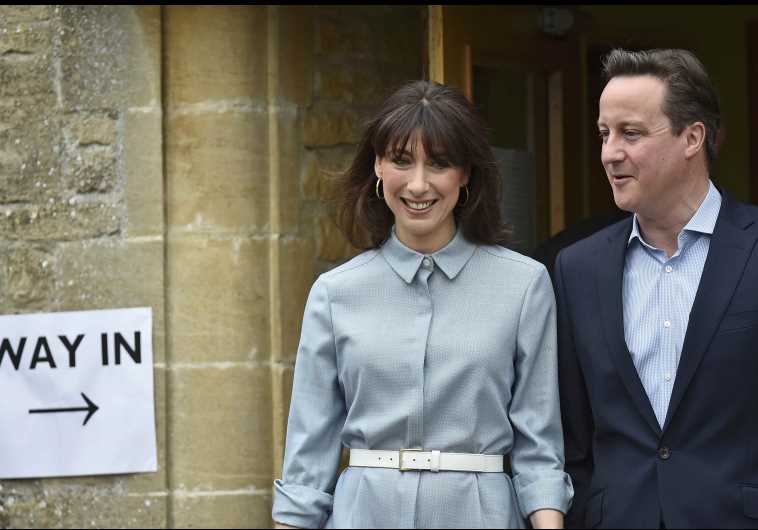Britons begin voting in most unpredictable election in decades
Cameron's Conservatives and Ed Miliband's opposition Labor Party have been neck and neck in opinion polls for months.
 Britain's Prime Minister David Cameron and his wife Samantha leave after voting in Spelsbury, central England, May 7
Britain's Prime Minister David Cameron and his wife Samantha leave after voting in Spelsbury, central England, May 7